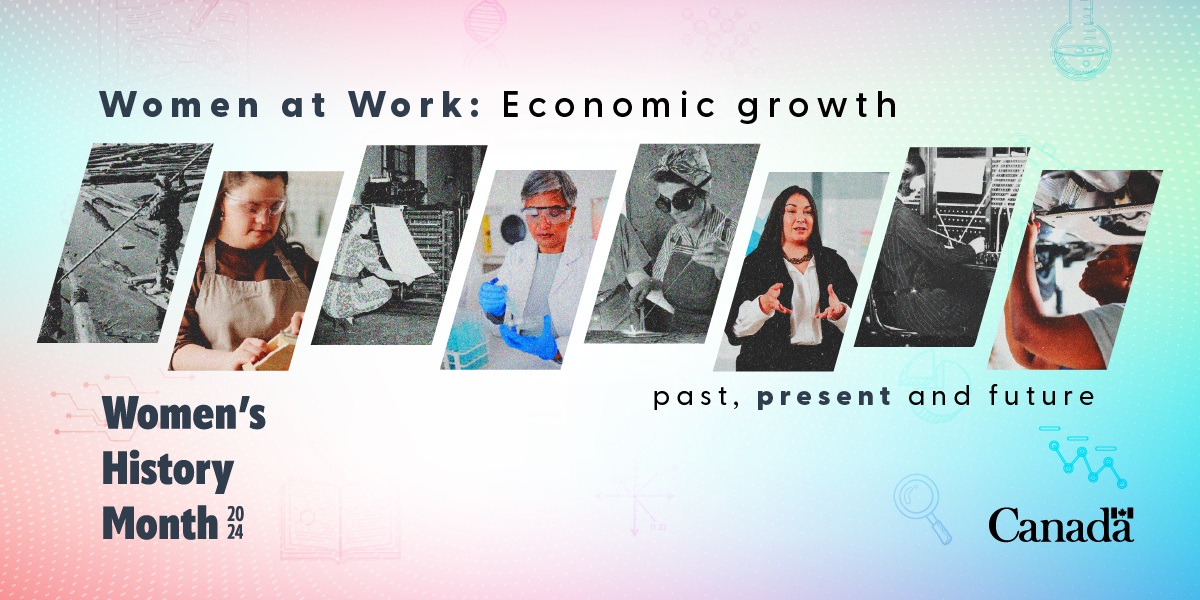October is Women’s History Month in Canada, a time dedicated to recognizing and celebrating the remarkable achievements and contributions of women throughout the country’s history. Officially established in 1992, this month-long observance highlights the ongoing struggle for gender equality and women’s rights.
This year’s theme, "Women at Work: Economic Growth Past, Present, and Future," focuses on the critical roles women have played in shaping Canada’s economy. It emphasizes not only the historical contributions of women in the workforce but also the challenges they continue to face in achieving equitable representation and opportunities in various sectors.

Women have been integral to Canada’s economic development from the early days of the country. Throughout history, women have contributed to various industries, from agriculture to manufacturing and service sectors. Their efforts have been essential in building a resilient economy, often while juggling family responsibilities and societal expectations. Icons such as Frieda G. Lee, who championed women's rights in the workforce, and Laura Sabia, who played a pivotal role in advancing women's economic interests, exemplify the profound impact women have had on Canada's economic landscape.
Educational institutions and community organizations across Canada often host events and activities to commemorate Women’s History Month. These may include lectures, panel discussions, art exhibitions, and workshops focusing on women's contributions in diverse fields, including business, science, and the arts. Schools frequently integrate programs encouraging students to learn about female role models, inspiring the next generation to continue the fight for equality.
This year, discussions around intersectionality are particularly relevant, as they recognize that women’s experiences and challenges can differ based on race, class, sexual orientation, and disability status. Acknowledging these diverse experiences allows for a more inclusive approach to conversations about women’s rights and achievements, emphasizing the need for solidarity in the pursuit of gender equality.
Despite significant progress, women in Canada continue to face challenges, including wage gaps, underrepresentation in leadership positions, and barriers to reproductive rights. Advocacy for policies that support gender equity, such as paid family leave and accessible childcare, remains crucial as Canada strives for a more just and equitable society.
Women’s History Month is not only a celebration of past achievements but also a call to action for ongoing efforts toward equality and justice for women in Canada. It provides an opportunity for all Canadians to reflect on the contributions of women and to advocate for a future where every woman has the chance to thrive and lead.
Sources:
- “Women’s History Month 2024 Theme: Women at Work: Economic Growth Past, Present and Future.” Government of Canada. Government of Canada.
- “Celebrating Women’s History Month in Canada.” Canadian Women’s Foundation. Canadian Women’s Foundation.




